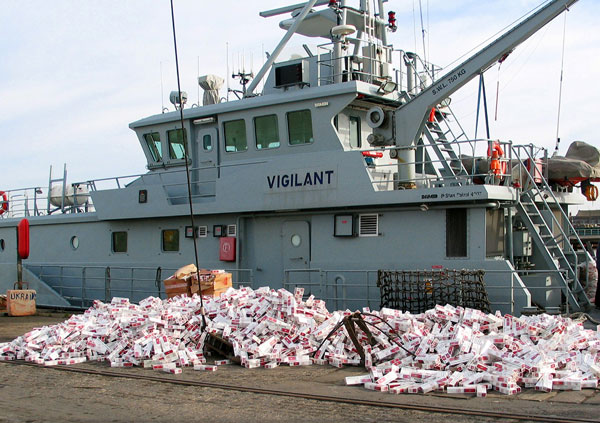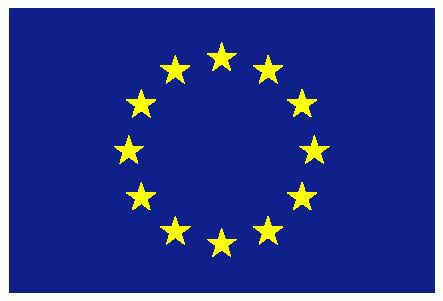Germany has come out in support of the EU Commission’s plan to make the tobacco industry cover the costs of cigarette waste, according to a Xinhua Newswire story quoting the Funke media group.
The Environment Minister Svenja Schulze was quoted as saying that those who produced disposable items, such as cigarettes, would have to take more responsibility for the waste that was generated. The tobacco industry could be involved, for example, in contributing to the costs of cleaning up beaches and parks.
In May, the Commission called on the tobacco industry to shoulder part of the clean-up costs of single-use plastic in cigarette filters.
Schulze said an EU-wide ban on unnecessary disposable plastic would be introduced before the end of this year.
It was necessary to resort to more drastic measures than have been in place in the past in order to stop the pollution of the seas and the environment.
The Commission, the EU Parliament and the Council of Ministers are due to discuss a new directive on single-use plastics.
Tag: European Union

No such thing as free waste

End to agreements sought
A Croatian member of the EU Parliament has asked the Commission if it believes it is feasible to terminate by May agreements that it entered into with tobacco manufacturers and that were aimed at countering the illegal trade in tobacco products.
In a preamble to two questions, Biljana Borzan said that, in 2016, Parliament had called on the Commission not to renew such an agreement with Philip Morris International.
‘Last April, it expressed the conviction that the agreements with the other tobacco companies should also be terminated and called on the Commission to present the feasibility of doing so by the end of the year,’ she said.
‘The Tobacco Products Directive introduced a traceability system for tobacco products, which will be operational on 20 May 2019, following the recent approval of the secondary legislation.
‘In addition, the WHO [World Health Organization] Protocol to Eliminate Illicit Trade in Tobacco Products, which was ratified by the EU in 2016, entered into force last September.
‘As Parliament made clear in 2016 and 2017, these agreements are becoming irrelevant and send a damaging and counterproductive message to third countries that the EU is engaging in inappropriate dealings with the tobacco industry.’
Borzan asked:
‘Does the Commission believe that it is feasible for the agreements with the tobacco companies to be terminated by 20 May 2019, as Parliament requested in its report?
‘When does the Commission expect to have a response ready for Parliament?’
Borzan’s questions are due to answered in writing.
Monitoring developments
The EU Commission has said it does not undertake educational awareness-raising campaigns on the toxicity of e-liquids and flavourings, and that it does not foresee its undertaking such activities.
The Commission was replying to questions posed by a Spanish member of the EU Parliament.
In a preamble to three questions, José Blanco López said the use of refillable e-cigarettes and the potential exposure to liquids from e-cigarettes that contained high concentrations of nicotine posed risks to public health.
Twenty percent of people aged between 14 and 18 had tried this ‘new system’.
‘The majority of them do not know that it contains nicotine and many others take another type of drug due to the different way that they use e-cigarettes, according to the latest data from the Spanish National Committee for Preventing Tobacco Addiction,’ he said.
‘In accordance with European regulations in this area, namely Regulation (EC) No 1272/2008, Directive 2014/40/EU and Report COM (2016) 269 final, can the Commission say:
1) ‘Is it considering the possibility of carrying out a greater number of investigations on certain aspects of e-cigarettes which apply to refillable models, such as emissions checks and studies on the safety level of the flavouring substances and their blends?
2) ‘Does it intend to raise standards for labeling?
3) ‘Does it intend to launch informative and educational awareness-raising campaigns on the toxicity of liquids and flavouring substances?’
In reply, the Commission said it had taken note of the figures from the Spanish National Committee for Preventing Tobacco Addiction presented by the MEP.
‘The Tobacco Products Directive lays down rules for tobacco and related products placed on the EU market,’ it said. ‘Article 20 of the Directive introduces a regulatory framework for electronic cigarettes with a focus on safety, quality, consumer protection and information as well as data collection.
‘The Directive does not however harmonise all aspects of electronic cigarettes or refill containers (e.g. rules on flavours and nicotine-free refill liquids are of national competence).
‘The Commission continuously monitors developments related to e-cigarettes, including emerging scientific evidence. This information will contribute to the implementation report on the Tobacco Products Directive that the Commission is required to submit in 2021, in line with Article 28(1) of the Directive. The Commission facilitates information exchanges and best practices, assessment of data and is working with member states for example in the Expert Group on Tobacco Policy, Subgroup on Electronic Cigarettes and in the context of a Joint Action on Tobacco Control.
‘The Commission does not currently undertake educational awareness-raising campaigns and does not foresee activity in this area.’
Snus ban stands
As had been expected, the European Court of Justice (ECJ) has upheld an EU ban on Swedish snus.
Swedish snus is banned in all EU countries except Sweden.
The ECJ’s ruling came in response to a challenge brought by Swedish Match (SM) against the validity of the snus ban under EU law. The challenge was originally brought in the UK and was referred by the High Court there to the ECJ.
In a note posted on its website on November 22, SM said that the ECJ had published its judgment ‘concerning the prohibition to sell Swedish snus to other European Union member states’. ‘The court rules that Swedish snus will continue to be excluded from the EU’s internal market,’ it said.
‘In its judgement the court states that EU legislature has broad discretion within the area at issue and that this implies that judicial review is limited. These limitations apply both to measures decided by the EU legislature and to the basic facts on which these measures have been based. Based on such limited review the court does not find that the ban on snus is manifestly inappropriate.
‘The judgment of the ECJ cannot be appealed which leaves a future removal of the ban essentially a political issue.’
The use of snus is far safer than smoking cigarettes, and snus does not come with the environmentally-damaging filters that cigarettes include. And snus has proved to be an acceptable alternative for many smokers.
Co-operation reinforced
The co-operation between the European Anti-Fraud Office and Montenegrin Customs has recently been reinforced, according to the EU Commission.
The Commission was responding to concerns raised by a Portuguese member of the EU Parliament about a possible increase in the number of cigarettes being smuggled into the EU from Montenegro.
In a preamble to three questions posed to the Commission, Ana Gomes said the Commission’s 2018 report on Montenegro had highlighted continuing issues surrounding illicit tobacco products entering the EU from the country’s free-trade zone at the port of Bar, and OLAF’s [European anti-fraud office] co-operation with national customs authorities with a view to controlling the flow of these products.
‘Media reports confirm that the Government of Montenegro has authorised a new free-trade zone in Podgorica to begin operations,’ she said.
‘The Podgorica free trade zone is all the more concerning as it contains a cigarette factory, which reportedly began production trials in late May 2018.
‘These developments present a new threat which could result in an increase in the number of cigarettes being smuggled into the EU from Montenegro.’
The MEP asked:
* ‘Can the Commission confirm that it is aware of the establishment of a new free-trade zone in Podgorica?
* ‘Can it provide details of the measures it intends to take with the Montenegrin authorities to put in place adequate controls on the flow of products from the new cigarette factory located in the new free-trade zone in Podgorica?
* ‘Can it indicate how the illicit trade in tobacco products will be addressed in the context of the accession negotiations on Montenegro’s candidature to join the EU?’
In reply, the Commission said that within the framework of EU accession negotiations, the Commission closely followed customs developments in Montenegro with regard to the relevant aspects of EU law. ‘It has therefore followed developments regarding the Novi Duvanski Kombinat free zone in Podgorica, and has been kept informed by Montenegrin Customs Administration of the measures that are being put in place there to strengthen inspections, in line with EU standards,’ it said.
‘Montenegro is a signatory to the World Health Organization Framework Convention on Tobacco Control (FCTC) and ratified the FCTC Protocol to Eliminate Illicit Trade in Tobacco Products in October 2017. The Montenegrin Law on Free Zones is broadly aligned with EU provisions and Montenegro’s special customs procedures on warehousing and inward processing are broadly aligned with the European Union’s customs code.
‘The issue of illicit trade in tobacco products is closely monitored by the Commission, and the co-operation with Commission services, notably The European Anti-Fraud Office and Montenegrin Customs, has recently been reinforced.’
Little faith in plain packs
An opinion poll published today by the smokers’ campaign group Forest EU reveals that there’s no overwhelming public support for more tobacco control measures in the EU.
The opinion poll conducted by Populus for Forest EU found that 56 percent of respondents agreed that measures to tackle smoking had gone far enough.
It found that of 10 key health objectives, curbing tobacco consumption was seen as the second least important issue for the European Commission’s DG SANTE to focus on.
And it found that only three percent of respondents thought the introduction of standardized tobacco packaging was the most effective way of reducing youth smoking rates. This figure compares with the 52 percent in favor of mandatory education in schools about the health risks of smoking; the 23 percent in favor of harsher penalties for shopkeepers caught selling tobacco to minors; and nine percent in favor of a ban on adults buying cigarettes for children.
“Lobby groups hostile to tobacco consumption are campaigning for the EU institutions and national governments to introduce new rules they believe are fundamental to eradicating smoking,” said Guillaume Périgois, director of Forest EU. “What this poll shows however is that there is relatively little public support for further extreme anti-smoking measures.
“What is similarly clear is that EU voters support a common-sense approach to tobacco control. Regulation should not be made at the behest of taxpayer-funded lobby groups but based on trustworthy, independent evidence.
“A significant number of European adults smoke, and enjoy doing it, and their contribution to society is substantial. The best way for the next European Commission to signal a move away from an excessively bureaucratic approach would be to prioritize actions in the areas that EU citizens clearly see a need.
“The results of this survey show that Forest EU’s positions are representative of those held by smokers in Europe. Like Forest EU, 73 percent of European smokers think tobacco control measures have gone far enough, 47 percent think curbing tobacco use should be DG SANTE’s bottom priority and 80 percent think bars, cafés and restaurants should have the legal option to provide a separate, well-ventilated smoking room.”
Populus interviewed 6,167 adults aged 18+ online in France (1,024), Germany (1,036), Poland (1,040), Romania (1,029), Italy (1,018) and Spain (1,020), with interviews being conducted between May 25 and May 31, 2018. These member states were said to cover 60 percent of the EU population with 310 million citizens and a diversity in smokers’ habits, tobacco control policies and historical factors.
Populus – Attitudes towards tobacco policies in the EU is available here.
Forest EU advocates for the consumer, not the tobacco industry, but is supported by the Confederation of European Community Cigarette Manufacturers (CECCM) whose members are Japan Tobacco International (JTI), British American Tobacco (BAT) and Imperial Brands PLC (IMB), and by the members of the European Smoking Tobacco Association (ESTA). Forest EU’s annual budget in 2018 is €165,000.
No answer to poisoning
The EU Commission has said that the issue of improving health and agricultural safety in Zimbabwe features in regular policy dialogues with the Government.
The Commission was responding to questions from an Italian member of the EU Parliament, who had asked the Commission what steps it was taking to reduce the risk of tobacco poisoning among tobacco farmers and their families.
In a preamble to her questions, Barbara Matera said that when the proper safety procedures were not adhered to, the risk of tobacco poisoning among farmers was high.
‘Zimbabwe, in particular, has experienced a large number of tobacco poisoning cases, which can be attributed to a lack of education about the condition and a lack of funding for the proper preventive equipment,’ she said.
‘This sickness also greatly affects children who help out with the harvest in rural areas.’
Matera said tobacco was Zimbabwe’s largest export product, and its largest agri-food export to the EU, before asking:
‘What is the Commission doing to promote education among tobacco exporters?’
‘What can the Commission do to provide adequate equipment and protection for farmers, especially those with children?’
In its written reply, the Commission said the 11th European Development Fund National Indicative Programme (€234 million), envisaged support for health, agriculture-based economic growth and governance in Zimbabwe.
‘The Commission does not provide support to the production of tobacco in Zimbabwe,’ it said. ‘However, agriculture being the backbone of Zimbabwe’s economy, the Commission provides substantial support to agricultural resilience and production and supports value-chains for products such as beef, chicken or dairy aiming at creating jobs.
‘The Commission is also one of the main contributors to the Health Development Fund managed by the United Nations Children’s Fund. This Fund aims at guaranteeing that the population can access comprehensive and effective health services and at strengthening health systems to improve the level of care.
‘The issue of improving health and agricultural safety also features in the regular policy dialogue with the Government.
‘Zimbabwe is a Party to the World Health Organization Framework Convention on Tobacco Control. Article 17 recognises the need to promote economically viable alternatives to tobacco production to prevent adverse impacts on populations whose livelihoods depend on it. Article 18 covers the protection of the environment and the health of persons in respect of tobacco cultivation and manufacture. Zimbabwe has benefited from sharing of experience and provision of technical assistance for the implementation of these articles.’
Inclusive report promised
The EU Commission has said that it will take into account all relevant information as it prepares for the submission in 2021 of its implementation report on the Tobacco Products Directive (TPD).
It was responding to an Irish member of the EU Parliament who had asked if the Commission would be taking account the contents of a UK parliamentary report and a letter signed by four academics – both of which had come out in favor of vaping – when the Commission produced its implementation report on the TPD.
In a preamble to his questions, Luke Ming Flanagan asked, with reference to the Commission’s statement that it continuously monitored developments, whether it was aware of the recent all-party UK House of Commons Science and Technology Committee report that was published on August 17 and that came out strongly in favor of vaping.
He asked also; was the Commission aware of the submission to the World Health Organization of a letter signed by four top academics, again outlining, in great detail, the case in favor of vaping.
And he asked if the Commission could confirm that it would now take those reports into consideration in the implementation report it was required to submit in 2021, in line with Article 28(1) of the directive.
In reply the Commission said it had taken note of the House of Commons Science and Technology Committee report on E-cigarettes and was aware of the letter sent to the WHO by Dr. Abrams, Mr. Bates, Dr. Niaura and Mr. Sweanor on September 3, 2018.
‘The Commission will take all relevant reports and information into consideration for the upcoming implementation report that the Commission is required to submit in 2021, in line with Article 28(1) of the Tobacco Products Directive,’ it replied.
No export relief
The EU Commission has said that it is not possible to exclude tobacco products for export from the requirements of its pack traceability system.
The Commission was responding to a Danish member of the EU Parliament who had asked the Commission whether the requirement for unique, tobacco-product identifiers would be waived in the case of products manufactured in the EU but intended for export to countries that did not allow such markings.
In a preamble to his questions, Bendt Bendtsen said the rules of the Commission Implementing Regulation (EU) 2018/574 of December 15, 2017, on technical standards for the establishment and operation of a traceability system for tobacco products required in Article 6(1) that manufacturers marked each pack produced in the Union with a unique identifier.
‘What does the Commission intend to do in order to ensure that no tobacco products produced in the EU are prevented from being imported into non-EU countries as a result of the new track and trace rules, which require all EU-manufactured products to show a mandatory unique identifier?’ he asked.
‘Does the Commission intend to take steps to suspend said requirement for products manufactured for import into countries which, as of 20 May 2019, do not allow imports of tobacco products produced in the Union as a result of the EU requirement of a unique EU identifier?’
In response, the Commission said that the ‘inclusion of tobacco products for export in the scope of the traceability system was fully in line with both the Tobacco Products Directive 2014/40/EU and the [World Health Organization’s] Framework Convention on Tobacco Control (FCTC) Protocol to Eliminate Illicit Trade in Tobacco Products. ‘Therefore, there is no possibility to exclude tobacco products for export from the requirements to be tracked and traced,’ it said.
‘In this context, it is important to note that the measures adopted are designed to address the issue of illicit tobacco trade in the broadest possible way, thus including exports of EU tobacco products to third countries.
‘The Commission is already in direct contact with certain third countries to ensure that EU tobacco products can continue to be exported. The recent Conference of the Parties to the FCTC, called upon Parties to ensure that the rules on packaging and labelling are applied in a manner compatible with the provisions on product traceability.’
One for all, all for one
A Czech member of the EU Parliament has questioned whether the high number of illicit cigarettes entering France should be principally a matter for the French authorities; as the Commission suggested last month.
In a preamble to his question, Tomáš Zdechovský said that, in its response to parliamentary question E-003300-18 [see TR‘s story of September 21, 2018: Going it alone], the Commission had confirmed that, ‘OLAF [European anti-fraud office] can bring significant added value by helping co-ordinate anti-smuggling operations’.
However, in relation to the cigarettes smuggled from Algeria to France, it had stated ‘France has so far not requested OLAF’s assistance in this regard’.
‘It is estimated that the annual revenue losses to the EU due to cigarette smuggling amount to as much as €10 billion every year; France has the highest volume of illegal cigarettes in the EU, and OLAF has the ‘unique investigative mandate to fight tobacco smuggling into the EU,’ Zdechovský said, before asking:
‘Given that the issue in France is precisely that of tobacco smuggling into the EU, should OLAF not be more proactive?’








